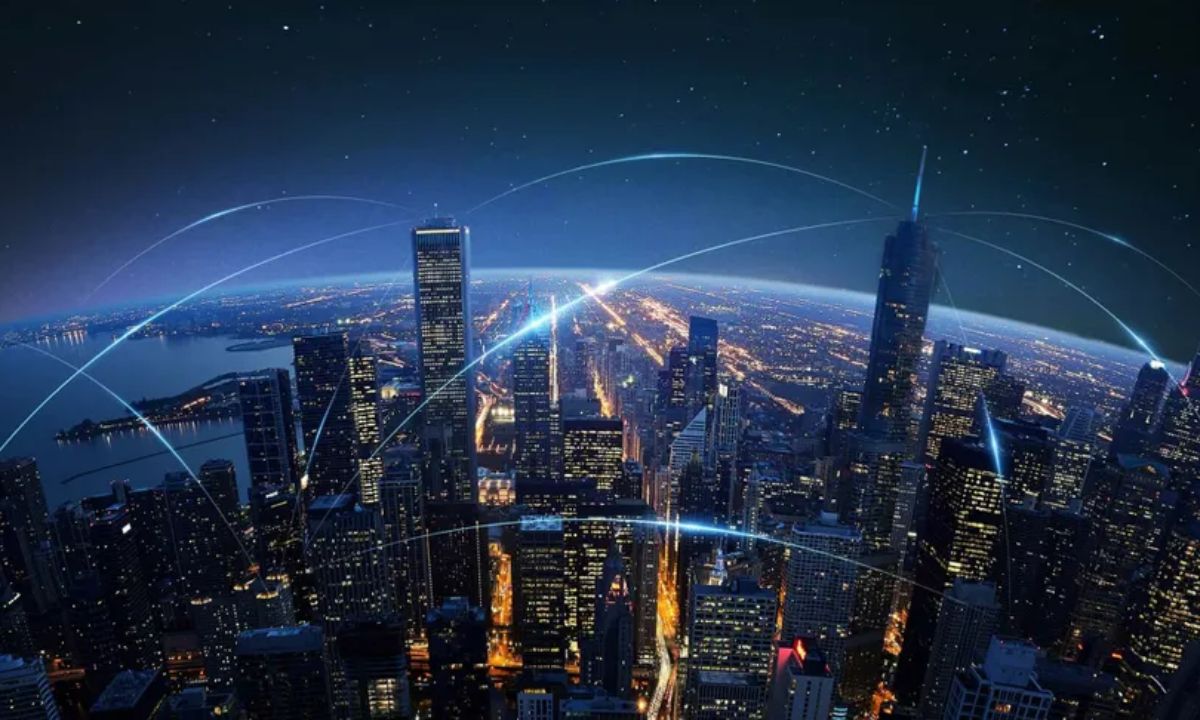Cities worldwide are becoming smarter every day. They are applying new technology for the benefit of their residents. One of the most stimulating technologies that are building these smart cities is blockchain – the technology behind Bitcoin and Ethereum, notwithstanding the rollercoaster ride in Ethereum price. Let us examine how blockchain is aiding in the formation of cities for tomorrow.
What Makes a City “Smart”?
A smart city uses digital technologies and data to solve problems to create a better city life. For example, traffic lights changed based on real-time traffic updates, applications to find parking slots, or smart power grids that conserve energy. Such cities are equipped with information networks whereby they collect data from sensors, mobile phones, and other devices, which in turn can make more informed city decisions.
How Blockchain Fits In
Blockchain is like a super-secure digital record book that everyone can see, but nobody can change it without permission. When information is stored on a blockchain, it’s protected by complex math and spread across many computers. This makes it very hard to hack or tamper with the data.
This security and transparency make blockchain perfect for smart cities. Here are some ways cities are using blockchain to become more innovative:
Making Government More Open
City governments handle lots of essential records like property titles, business licenses, and voting records. By putting these on a blockchain, everyone can see what’s happening with public money and services. This not only helps stop corruption but also empowers citizens by ensuring everything is done fairly. For example, when a city gives out contracts to construction companies, everyone can see who did what and why they were chosen.
Improving Transportation
Imagine paying for all your travel – buses, trains, shared bikes, and parking – with one digital wallet. Blockchain makes this possible by connecting different transportation services securely. Some cities are already testing systems where you can pay for any transport with cryptocurrency or tokens stored on a blockchain.
Better Energy Management
Smart cities need smart power grids that can handle solar panels, electric car charging, and changing energy needs throughout the day. Blockchain helps track all this energy usage and lets people buy and sell extra solar power directly to their neighbors. This not only makes the power grid more efficient but also promotes environmental responsibility, helping the environment.
Protecting Personal Data
Smart cities collect lots of data about people – where they drive, how much power they use, and what services they need. Blockchain helps keep this information safe while still letting the city use it to improve services. People can choose what information they share and see precisely how it’s being used.
Real Examples from Around the World
Dubai is leading the way in becoming a blockchain-powered smart city. They plan to put all government documents on blockchain by 2025. This will save millions of work hours and tons of paper.
In Singapore, they’re using blockchain to help people pay for public services and keep track of healthcare records. The system makes sure personal information stays private while letting different government departments work together better.
Amsterdam is testing blockchain to help people rent out their homes safely and legally. The system checks if the rental follows city rules and automatically handles payments and contracts.
Challenges to Overcome
While blockchain can do amazing things for smart cities, there are some problems to solve:
- Using blockchain takes a lot of computer power and electricity. Cities need to find ways to make it more energy-efficient.
- Only some understand or trust blockchain technology. Cities need to teach people how it works and why it’s safe.
- Different blockchain systems need to work together smoothly. A city might use one system for transportation and another for energy, but they all need to connect.
The Future of Smart Cities and Blockchain
As blockchain technology gets better and cheaper, we’ll see more cities using it in new ways. Some exciting possibilities include:
- Digital voting systems that are entirely secure and impossible to cheat.
- Automatic insurance payments when sensors detect damage from storms or accidents.
- Smart contracts that automatically give permits when all requirements are met.
- Systems that reward people for recycling or using less energy during peak times.
Making It Work for Everyone
For smart cities to succeed, they need to work for all residents, not just tech-savvy ones. This means:
- Creating simple interfaces that anyone can use, regardless of their tech knowledge.
- Making sure people without smartphones or computers can still access city services.
- Protecting privacy while keeping systems transparent.
- Getting communities involved in deciding how to use blockchain technology.
Conclusion
Although smart cities enabled by blockchain are just starting to showcase what is possible, more cities will experiment with such technology, bringing out new designs for more excellent, safer, and productive urban living solutions for all. The critical point is striking that elusive balance between implementing innovation and practicality.
ALSO READ: Discover Biitland.com Crypto: Revolutionizing Digital Currency















